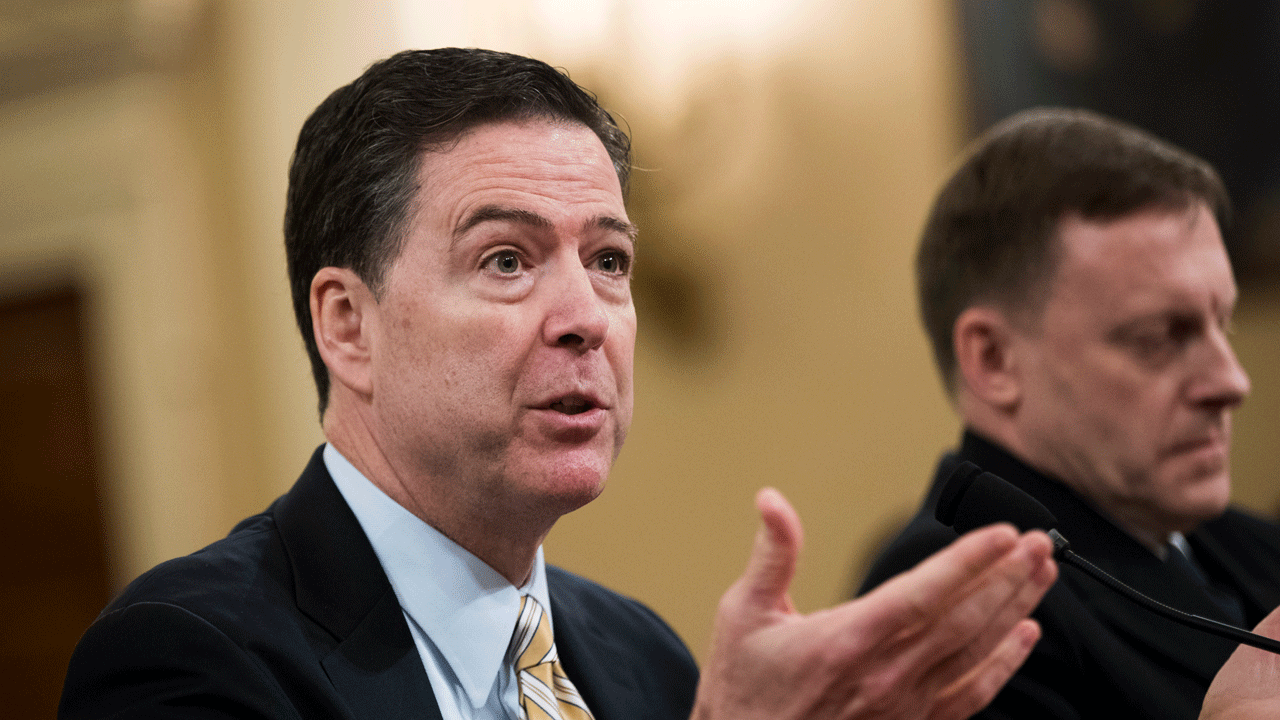As the Justice Department considers espionage charges against WikiLeaks and its founder Julian Assange for leaking classified documents, the director of the FBI has made it clear in a Senate hearing that he doesn’t believe that what the group does should qualify as “legitimate” journalism.
A number of First Amendment activists and media experts have said that charging Assange for his role in distributing leaked documents would threaten journalism. The fact that WikiLeaks receives classified information from anonymous sources and publishes it is no different than what the New York Times does, they argue.
FBI director James Comey, however, said in testimony before the Senate Judiciary Committee on Wednesday that he believes there are critical differences in what WikiLeaks does and what “legitimate” journalists do in the pursuit of such information.
Https://twitter.com/nicoleperlroth/status/859795453239578625
And what are those differences? For one thing, Comey said that American journalists who receive or obtain classified intelligence usually call the government before publishing it, in order to ensure that people named in the documents aren’t put in danger. “This activity I’m talking about with WikiLeaks involves no such considerations whatsoever,” he said.
Julian Assange, however, responded to this charge on Twitter, saying the FBI director was not telling the truth. “James Comey just mislead the Senate while under oath when he said Wikileaks ‘doesn’t call us’,” Assange wrote. “We did over #Vault7 and I know he knows it.”
James Comey just mislead the Senate while under oath when said Wikileaks "doesn't call us". We did over #Vault7 and I know he knows it.
— Defend Assange Campaign (@DefendAssange) May 3, 2017
Vault 7 was the name given to a large dump of data that WikiLeaks started releasing in March that detailed many of the CIA’s hacking and surveillance techniques. Glenn Greenwald of The Intercept also confirmed on Twitter that WikiLeaks contacted the government before releasing the documents.
Comey also argued that “legitimate” news gathering is aimed at educating the public about an important issue. What WikiLeaks did, he said, was simply “intelligence porn,” since it involved “just pushing out information about sources and methods without regard to interests.”
“A huge portion of WikiLeaks has nothing to do with legitimate news gathering and is simply about releasing classified information to damage the United States,” Comey said, referring to it as a “conduit for Russian intelligence.”
FBI Director James Comey today: WikiLeaks is "intelligence porn" that publishes "without regard to interest".Https://t.co/6Oj6mC2V5l pic.twitter.com/zG8lsbZk3A
— WikiLeaks (@wikileaks) May 3, 2017
The problem that the FBI director’s comments raise is the same one that is raised by the Justice Department’s interest in possibly charging Assange with espionage: Namely, how is the government supposed to differentiate between what WikiLeaks does in such cases, and what “legitimate” media organizations like the New York Times do?
The idea that WikiLeaks doesn’t check with government or care about the safety of those named in the documents it leaks doesn’t really hold water, as Assange and others have pointed out (although it was criticized for not redacting names from some of the diplomatic cables it leaked).
As for engaging in this kind of behavior deliberately in order to damage the United States, almost every publication of official documents from the Pentagon Papers on has been accused of doing this, so that’s not a differentiating factor either.
Get Data Sheet, Coins2Day ’s technology newsletter.
So that leaves Comey’s definition of what legitimate news gathering outlets do vs. What WikiLeaks does. In other words, the argument that legitimate journalism has a specific educational purpose, targeting at a specific issue, whereas what WikiLeaks does is simply “intelligence porn,” releasing reams of documents with little regard for what they are about.
This argument also fails, however. Comey appears to be saying that a “data dump,” in which all kinds of documents or material are released at once, can’t qualify as legitimate journalism.
But if this was the case, then articles written by the New York Times and the Washington Post and other news outlets based on the WikiLeaks diplomatic cables wouldn’t qualify as journalism, unless they confined themselves to a single issue that they were trying to “educate the public” about. That’s a pretty restrictive definition of “legitimate” journalism.
The harder the government and its agents try to define journalism in such a way that it implicates WikiLeaks but not a traditional outlet like the New York Times, the more disturbing their efforts become, and the more the lines between the two continue to blur.
The risk remains that the Justice Department will pursue its case against Assange and WikiLeaks for ideological reasons, and that in the process it will try to finesse the distinction between the group and journalism—and this will provide even more ammunition for the government to go after legitimate journalists whose work it disagrees with.












